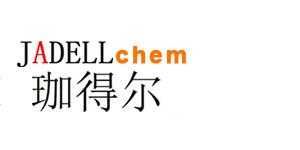Recombinant Human Granulocyte-Macrophage Colony Stimulating Factor (CHO-expressed) 是造血生长因子和免疫调节剂。
Synonyms
rHuGM-CSF; CSF-2; MGI-1GM; Pluripoietin-alpha; Molgramostin; Sargramostim
Species
HumanSource
CHO Accession
P04141 Gene ID
1437 Molecular Weight
22-28 kDa AA Sequence
APARSPSPST QPWEHVNAIQ EARRLLNLSR DTAAEMNETV EVISEMFDLQ EPTCLQTRLE LYKQGLRGSL TKLKGPLTMM ASHYKQHCPP TPETSCATQI ITFESFKENL KDFLLVIPFD CWEPVQE Biological Activity
The ED50 is <0.2 ng/mL as measured by TF-1 cells, corresponding to a specific activity of >5 × 106 units/mg. Appearance
Lyophilized powder. Formulation
Lyophilized after extensive dialysis against PBS. Endotoxin Level
<0.2 EU/μg, determined by LAL method. Reconstitution
Reconstitute the lyophilized recombinant Human Granulocyte-Macrophage Colony Stimulating Factor (CHO-expressed) (rHuGM-CSF) to 100 µg/mL using ddH2O or diluted with PBS. Storage & Stability
Lyophilized recombinant Human Granulocyte-Macrophage Colony Stimulating Factor (CHO-expressed) (rHuGM-CSF) is stored at -20°C. After reconstitution, it is stable at 4°C for 1 week or -20°C for longer. It is recommended to freeze aliquots at -20°C or -80°C for extended storage. Shipping
Room temperature in continental US; may vary elsewhere. Background
Granulocyte-macrophage colony-stimulating factor (GM-CSF) is produced by a variety of cell types including T cells, macrophages, endothelial cells and fibroblasts upon receiving immune stimuli. It is an important hematopoietic growth factor and immune modulator. GM-CSF also has profound effects on the functional activities of various circulating leukocytes. GM-CSF stimulates multipotent progenitor cells depending on its concentration, the proliferation of macrophage progenitors at the lowest doses, followed by granulocyte, erythroid, eosinophil, megakaryocyte and multipotent progenitors. It also stimulates the differentiation of myeloid leukemic cells and controls eosinophil function in some instances[1][2]. GM-CSF also enhances the functionality of mature cells, such as neutrophils. In neutrophils, GM-CSF potentiates degranulation, the release of oxygen and nitrogen radical ions, phagocytosis, and inhibits apoptosis[3]. GM-CSF inhibition in some animal models of autoimmune diseases showed significant beneficial effects[4]. GM-CSF also has many pro-inflammatory functions and recent data implicates GM-CSF as a key factor in Th17 driven autoimmune inflammatory conditions[5]. |



